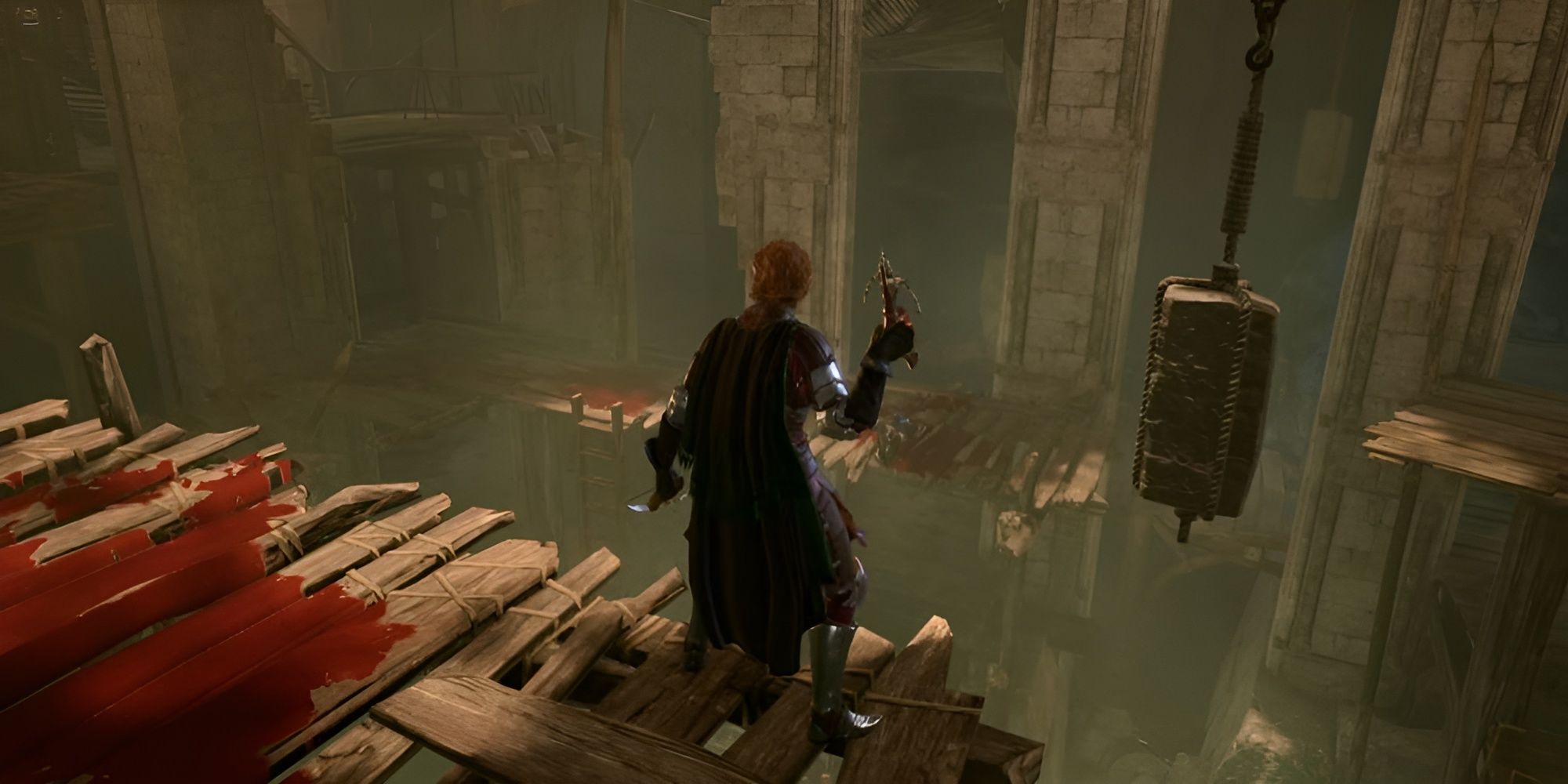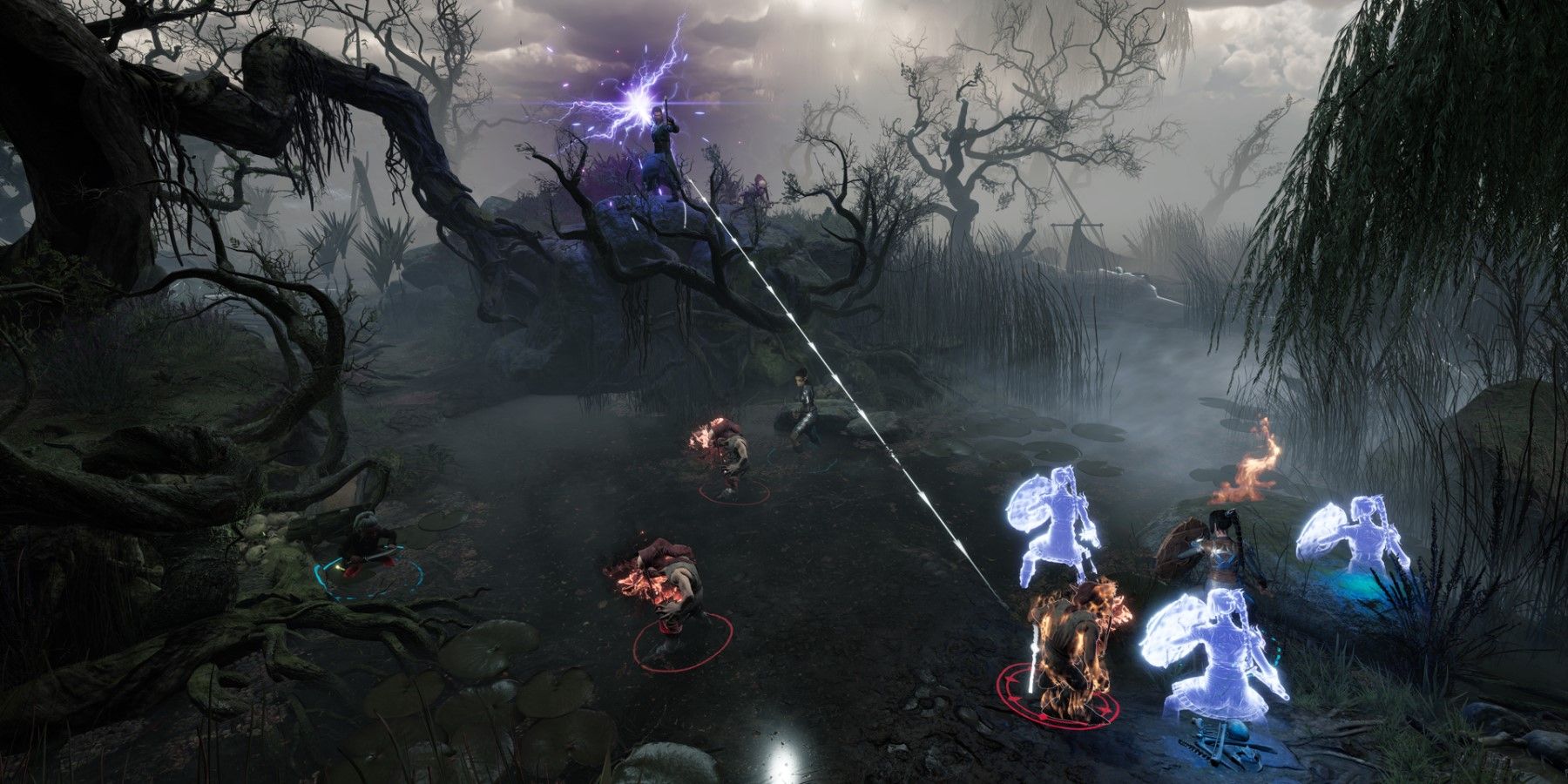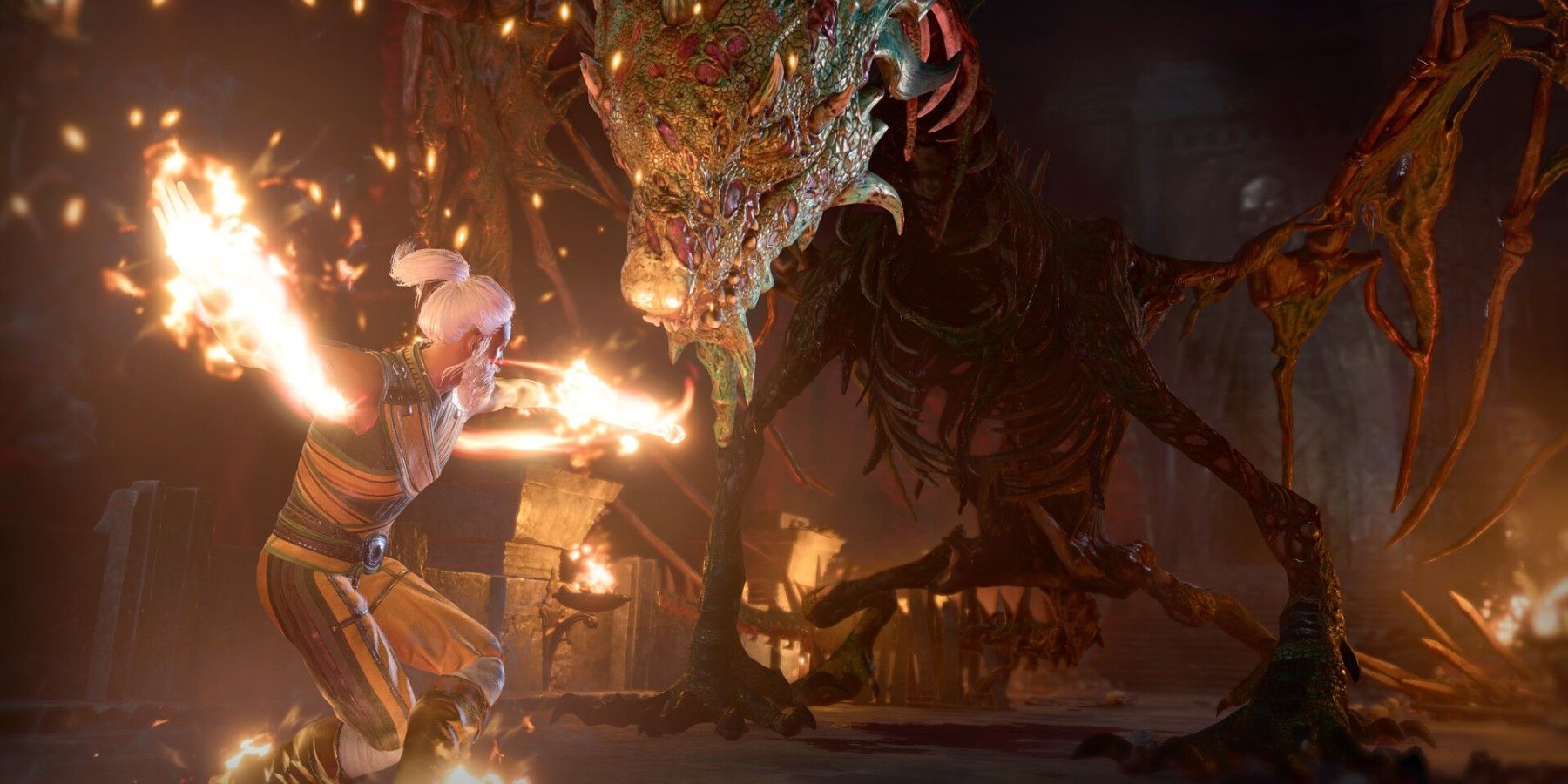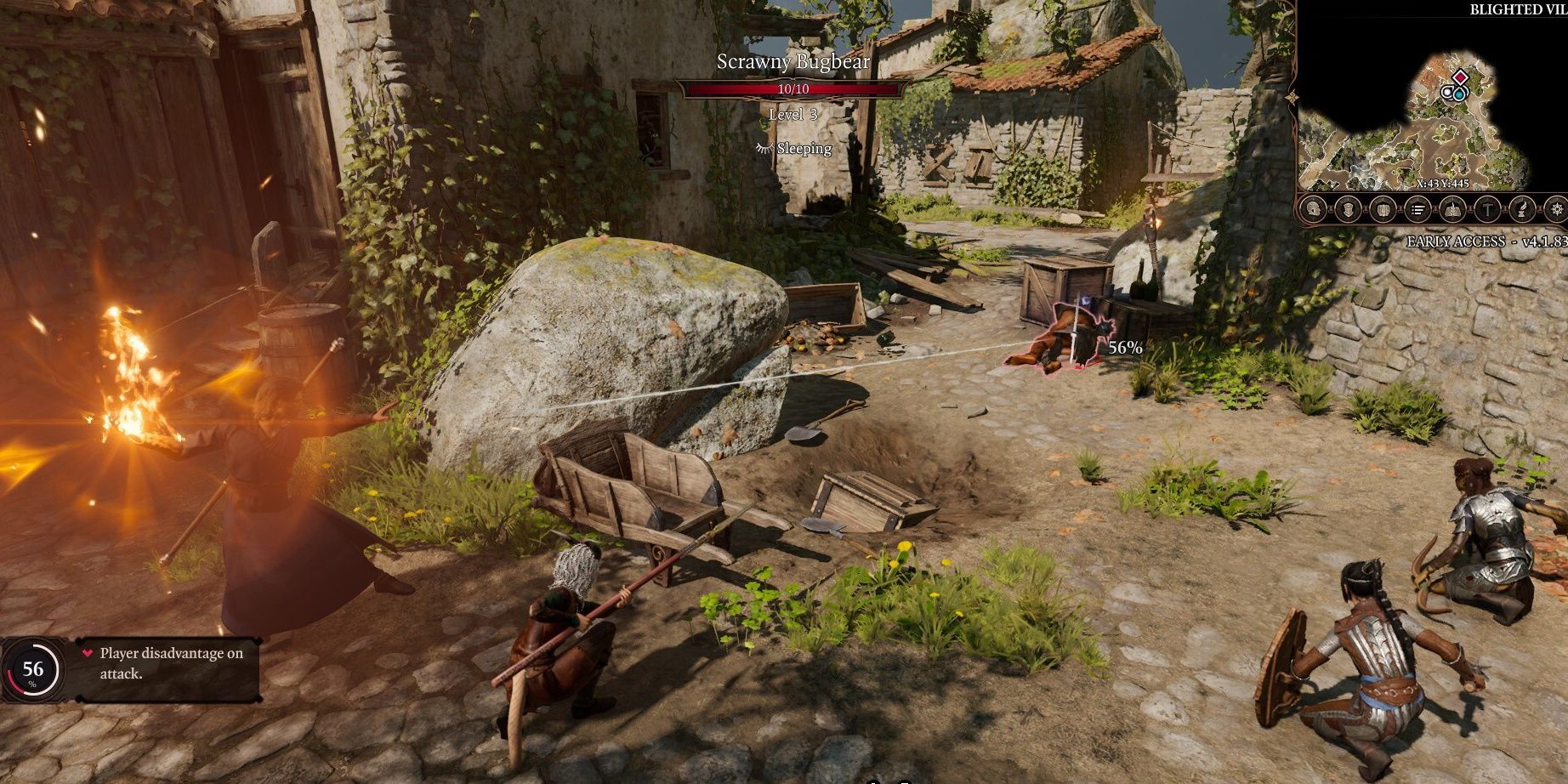Baldur's Gate 3 runs on the Dungeons & Dragons Fifth Edition system, adapted for CRPG by Larian Studios. Although not every tabletop rule and system has made it into the game, Baldur's Gate 3 remains largely faithful and contains many features that will be familiar to Fifth Edition players.
The Advantage and Disadvantage system was first introduced to Dungeons & Dragons in Fifth Edition, and helped to define its new approach to dice bonuses. While many previous editions supported players gaining contextual bonuses to their dice rolls, Fifth Edition simplified and streamlined these often complicated systems and folded them all into Advantage and Disadvantage. Baldur's Gate 3 makes use of the Advantage/Disadvantage system with almost no changes, allowing players to rely on this core Fifth Edition rule.
What Is Advantage and Disadvantage in Baldur's Gate 3?
Just as in Dungeons & Dragons Fifth Edition, having Advantage and Disadvantage in Baldur's Gate 3 allows players to roll two d20s instead of one on a check, and then take the higher (with Advantage) or the lower (with Disadvantage) result. The benefit of rolling twice and picking the highest with Advantage is roughly equivalent to a +4 bonus, making each check 20% more likely to succeed. Additionally, Advantage gives players two chances to roll a Critical Success, and strong protection against Critical Failures.
On the other side of the coin, Disadvantage makes rolling a Critical Success incredibly unlikely, and rolling a Critical Failure a dangerous possibility. It's important to note that neither Advantage nor Disadvantage can stack, and overlapping sources of each will be wasted. Additionally, any feature that allows a player to reroll a die, such as the Lucky Feat, will only be able to reroll one of two dice rolled with Advantage.
Obviously, Baldur's Gate 3 players will want their own characters to have Advantage and their enemies to have Disadvantage as often as possible. However, achieving this goal isn't as simple as it sounds, as there are a huge number of spells, abilities, and conditions in Baldur's Gate 3 that can add Advantage or Disadvantage to rolls.
How to Get Advantage in Baldur's Gate 3
There are many ways to get Advantage in Baldur's Gate 3, but most will cost the player some kind of class resource. In Fifth Edition players can reliably achieve Advantage through Flanking, but the Flanking system is completely absent in Baldur's Gate 3. Instead, almost all classes will gain access to a few spells, abilities, or conditions that can grant Advantage, but very few of them are at will.
The only class that can have Advantage on every attack for free is the Barbarian with their Reckless Attack ability, though this comes with the downside of also granting Advantage to every enemy that attacks them before their next turn. Other martial classes will have to rely on features like the Battle Master Fighter's Trip Maneuver, which can inflict the Prone condition and grant all melee attacks Advantage. For Spelcast, there are even more options, with spells like Faerie Fire, Tasha's Hideous Laughter, and Hold Person all granting Advantage against the afflicted target.
Finally, it's also possible to inflict Advantage-granting conditions through the use of environmental effects. Maps in Baldur's Gate 3 are often littered with steep slopes and long falls, and high-Strength characters can use Shove to send their foes tumbling over ledges as a Bonus Action. Any PC or NPC that falls a significant distance has a chance to end up Prone when they hit the ground, granting Advantage on all melee attacks against them until they stand up again.
How To Avoid Disadvantage in Baldur's Gate 3
The easiest way for players to avoid Disadvantage in Baldur's Gate 3 is to make sure that their characters only use armor that they have proficiency in, that they're never over-encumbered, and that they deal with any nasty conditions inflicted on them by enemies. All the spells and conditions that players can use to impose Disadvantage are available to enemies too, so players will want to invest in defensive magic, high Saving Throws, and make sure to rescue afflicted party members before their foes can exploit their vulnerability.
Finally, as much as players want to avoid Disadvantage themselves, they'll also want to inflict it on their enemies. Fortunately, there are several spells and abilities that can force a target to roll with Disadvantage. These include the Blur spell for Wizards and Sorcerers in Baldur's Gate 3, as well as conditions like Blinded and Weak Grip.
Using spells and abilities to gain Advantage and impose Disadvantage, while doing the reverse to enemies, is a fundamental part of the Dungeons & Dragons Fifth Edition system. Players will need to master the system in order to succeed in Baldur's Gate 3's higher difficulties, as fighting with the aid of Advantage can easily make the difference between victory and defeat.
Baldur’s Gate 3 is set to release on August 3, 2023, for PC and September 6, 2023, for PS5.







